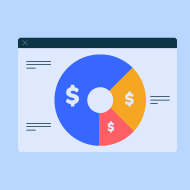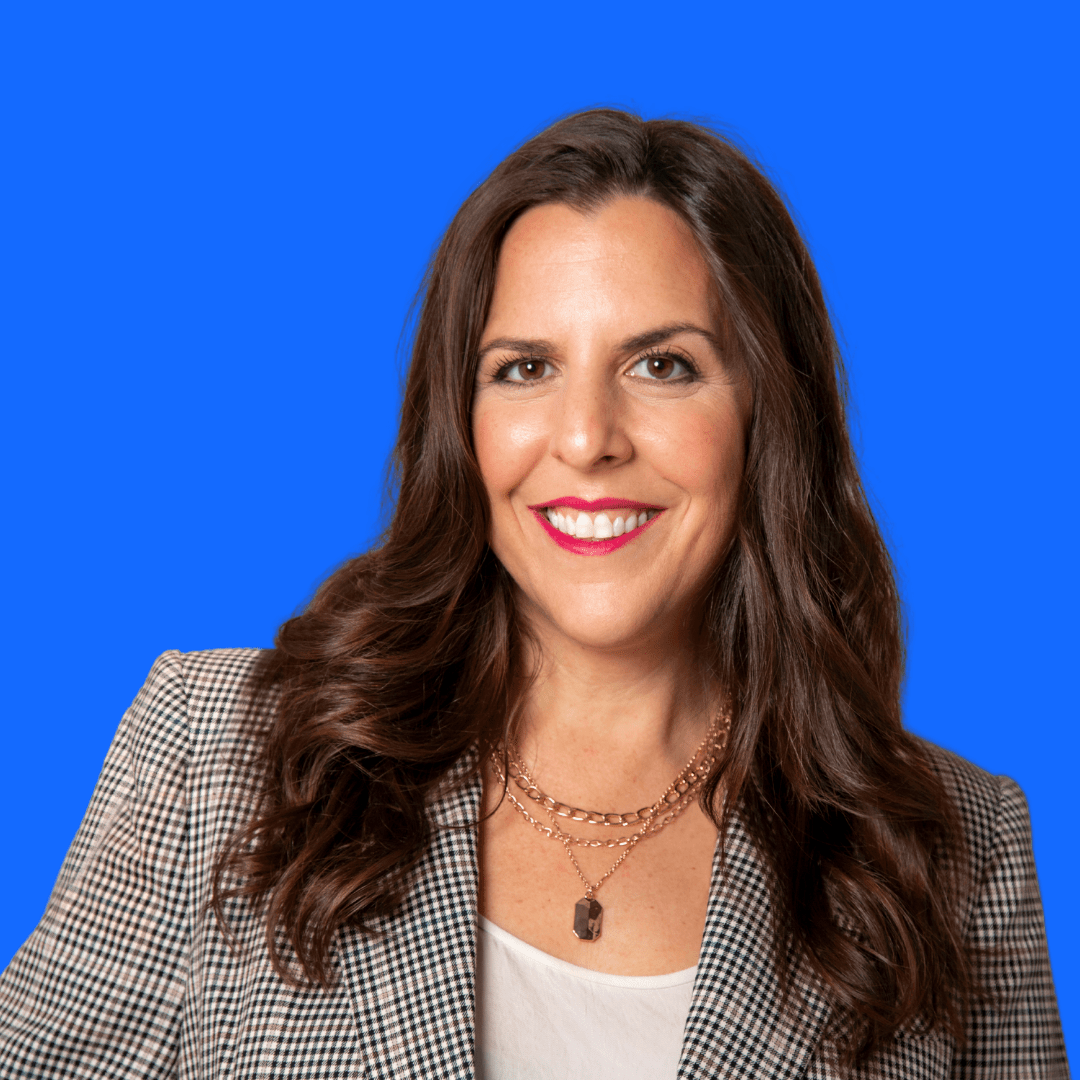The Crunchbase “Female Founder Series” is comprised of stories, Q&As and thought-leadership pieces from glass-ceiling-smashers who overcame the odds and are now leading successful companies, or investing in them.
M12 Managing Director Tamara Steffens and Webee co-founder and COO Cecilia Flores first met when Flores delivered her pitch as a 2020 Female Founders Competition finalist. While competition host firms M12, Mayfield and Melinda Gates’ Pivotal Ventures planned to hear all pitches live at Mayfield on Sand Hill Road, COVID precautions pushed the March 18 event to a virtual meeting.
Of the hundreds of Female Founders Competition applicants and 20 finalists, Webee was one of four winners, and was awarded $2 million in investment from the three host firms. Steffens and Flores have since met in person in the Bay Area, and are currently planning joint speaking opportunities this winter.
In this joint Q&A, Steffens and Flores share their respective experiences in venture capital and entrepreneurship, along with advice for female leaders paving their own paths in these often exclusive industries.
Tamara Steffens, Managing Director, M12 – Microsoft’s venture fund
Q: How did you get into VC?
I love startup culture and had a great career leading early-stage companies. Of the six startups I’ve helped build, four were acquired and two went public. I made my way to Microsoft when Acompli was acquired and became Outlook mobile. After five years of working in business development for Microsoft’s productivity and education businesses, I really wanted to tap back into startup opportunities.
Working in Microsoft’s San Francisco offices, I met a few members of the M12 team, and realized it would be a great opportunity to sit on the other side of the table as an investor. I had raised so many rounds myself, and M12 was looking to add an operator to the team. With the support of a career sponsor, Peggy Johson—then the executive vice president of business development at Microsoft—I joined M12 as a managing director.
Q: Why did you choose to enter VC?
Working in venture capital felt like a way for me to get back into the game—into that startup mentality. At this stage in my career, it feels like one of the most productive ways I can contribute positively to the startup ecosystem: Deploying capital and leveraging my experience as a board member to accelerate the next wave of great founders.
Q: What issues in the VC world are you trying to solve?
There are a couple of big issues in the VC space that I’ve become quite passionate about:
1. Access to careers in VC–Historically, there has been a predetermined path to get into venture: ivy league educations, finance experience, the right connections. But many people could be great VCs, regardless of their background or identity—not just people who have this exact pedigree. To create greater access to careers in VC, I’ve spoken at several summits and conferences to increase visibility of the industry. This summer, we worked with Black Venture Capital Consortium to welcome an incredible venture fellow to our team. We’re also working with Included VC, a nonprofit organization that is changing the face of the VC industry, and are hosting two venture fellows who have graduated from their program.
2. Access to capital for underrepresented founders–Homogeneity amongst VC checkwriters has largely directed funding to a specific segment of individuals and opportunities. Black and Latine founders, as well as women, have received significantly less access to capital. The industry has left so many early-stage founders in the dust with an identity-based, pattern-matching mentality. To realize a more diverse startup ecosystem, our team has established important partnerships with Project W, Colorintech, Women in Cloud and Black & Brown Founders to source potential investments more inclusively.
Q: Why did you choose the VC fund you’re currently at?
In my five years working in business development at Microsoft, I saw firsthand how the company’s platform can fundamentally change the trajectory of a startup. I’ve witnessed several great examples of startups successfully partnering with Microsoft to reach new customers or expand product capabilities. M12 provided me with the opportunity to serve as a bridge between these two worlds—to get back into the startup ecosystem and evangelize a company platform that I really believe in. I wouldn’t have sought out a career in venture otherwise—it wouldn’t have been my path.
Q: How did you network, find communities and make the connections you needed to get into VC?
My route into corporate venture was unique, but my network has been instrumental in helping to shape my career. The VCs who backed the startups I worked at previously have been important advisers even after company exits. In many cases, those investors were on the boards of companies I led. There’s an established, working relationship, as well as mutual trust and respect. Those connections helped me make the decision to move into VC; they have been great mentors as I build this stage of my career.
Q: What is your advice for other female VCs at the beginning of their journeys?
Focus on building the platform you need to help companies grow. Above and beyond money, establish the value-add you provide that can meaningfully accelerate startups. For many people, that might be your network; never stop building out your network! The bigger the network, the easier it is to help a founder or a company you’ve backed. For others, maybe your platform beyond capital is a unique skill set, like your ability to help companies go to market. Spend time honing those specific ways you can contribute to the growth of a startup even after you’ve written the check.
Q: What is the most valuable lesson you’ve learned in VC?
Listen more, talk less. As a former startup operator, it’s very easy to jump in and try to tell a founder what to do or how to do it—because oftentimes, I’ve done it before! But as I look back on my career, skill has been only one success contributor; timing and luck are even more important. Especially in the technology industry, the context of your success as an operator might be outdated. As a VC, my role is to partner with founders to cultivate leadership, not just hand over a playbook.
Cecilia Flores, Founder and COO, Webee – next-gen Industrial IoT
Q: Did you always know you wanted to be an entrepreneur?
I always had a strong call to make things happen. I started my career in the enterprise world where I constantly defied the “it has always been done this way” kind of mindset. For me, becoming an entrepreneur was not a career choice but a natural consequence of growth and the opportunity to make something meaningful where I could leave a mark in the world. That, combined with my internal call to always try to do things differently, to bring new ideas, and to never accept no for an answer, is what finally helped me become an entrepreneur.
Q: Why did you choose to enter your field/profession?
I often find it hard to understand why many complex technological developments really miss the opportunity to address global issues. I see technology as a means and not as the end goal, and from the very first time I learned about IoT, I could see the perfect match for this technology with the multiple sustainability challenges in the world, and I felt the call to do something with that.
Q: What issues did you see in your field or profession before you started your company?
My first challenge was conceiving the possibility of being a female founder of a tech company. All role models I knew were men, and in my head becoming a founder was not even a possibility. I knew I could add value, but it took me some time to digest the idea of becoming a leader.
At first, I took it as the way it was. If I wanted to enter this field, those were the rules: preparing much more, being resilient, and building a strong character. Unfortunately, that takes a toll on you and adds tons of stress and difficult situations that really shouldn’t happen. Even though there is some progress, biases and stereotypes often get in the way and I still have to continuously prove my value twice as much as my male counterparts.
Q: What inspired you to start your company?
The possibility of using technology to leave a positive impact in the world, helping the enterprise overcome some of the inherent complexities to push innovation internally, and help move projects at the speed the world needs.
Q: What problems were you trying to solve with your company?
One-third of all food produced in the world every year goes to waste, and 40 percent of that amount is due to inefficiencies during agriculture and manufacturing. We use no-code IoT technology to add visibility and reduce the impact on the environment through losses and the unnecessary use of natural resources.
Q: In the first eight months of 2021, only 2.2 percent of venture capital was invested in female-only founded companies. Do you feel welcome and accepted as an underrepresented group in the VC space?
Unfortunately, the overall experience has always been that some doors are harder for us to open than they are for others. Even with a stronger business case, we see a clear pattern in favor of those entrepreneurs who meet the traditional stereotype. A lot of the early-stage funding is based on assumptions, and the affinity with the founders is key. Lack of representation makes it hard to build those relationships that lead to strong partnerships and venture funding.
Q: How did you network, find communities and make the connections you needed to succeed?
We engage with organizations that share our vision and we partner with them to add value, whether it is in innovative ideas, solutions, research projects or pilots. When the visions of organizations are aligned, the relationship grows and it becomes very productive. The secret is that the relationships must be meaningful in both ways.
Q: What is your advice for other female founders at the beginning of their entrepreneurial journeys?
Spend most of your time understanding your market, your potential customers, the problem you are trying to solve. Validate your idea with your audiences once and again, and don’t be shy to ask the hard question or to knock on that door. There is also a lot of learning with rejection.
Q: What is the most valuable lesson you’ve learned as the founder of your own company?
Facing rejection is hard, but it’s also a natural part of the journey. If you look at it with an open mindset it can become a motivation for change. It forces you to review things, question yourself and find better ways to build what you are trying to build.
Q: What is your advice for other entrepreneurs trying to scale their own company?
Getting all your attention to a segmented market will give you more chances to accelerate the sales cycle and build processes, with a greater understanding of the problem they are trying to solve.
Q: Do you have a favorite quote or “personal mantra” you use to keep yourself motivated?
“If it wasn’t hard, everyone would do it.” And never take no for an answer.
Q: How have you integrated your values and mission into your own company structure?
Our values and mission are at the core of our operations, we have them as well in our performance reviews and frequently review them with our team. We also make sure our management team is aligned and leading by example.
Q: How did you connect with VCs? Can you describe your process of raising your last round of funding?
We connect ahead of time to create meaningful relationships. We look for firms that understand what we are trying to achieve and keep them informed of our progress. It is important to identify them before you start working on your funding round and try to get introductions from partners with whom you already engage.
Q: What are the biggest lessons you learned from raising your seed round of funding?
Your mission and the passion for the problem you are trying to solve are the backbone of the fundraising process at seed stage. It’s important to have a solid business hypothesis and data to validate it as well as a plan to show how you will get there.
Q: What are you going to use the new funds for?
We are preparing our next funding round to scale our business and grow our sales organization.
Q: How did you know you were choosing the right investors? What have they brought to the company?
The first indicator is that they ask the right questions. They focus their attention on the things that you know are important to your business. When that happens, you know you are on the same page. Having the right investors brought us many opportunities, from helping us build meaningful relationships with partners and clients, to mentorship and tools for the specific challenges that arise.
Q: What qualities do you possess that you think have contributed most to your success?
True entrepreneurial grit. We have proven with our experience that we have what it takes to build a strong company and make an impact.
Q: What do you find most rewarding about your experience as a founder so far?
The ability to take our ideas to action and to inspire others. Seeing our clients happy with our product is so satisfying. Women need to hear stories from others with whom they identify. I found it very important to share my learnings and see they inspire others to take action.
Q: How has your experience as a founder impacted those around you (i.e. friends, your community, family)?
I think for many in my community and home country, my founder experience has been inspiring and aspirational as they build their personal journeys. As a family it has been very challenging, and it continues to be. Juggling motherhood with entrepreneurship is not easy but it’s possible.
On one hand it requires much more organization and a daily commitment and effort, balancing your time and finding ways to work things around. On the other hand, it makes it more rewarding. I see my daughter growing up seeing her mother as a full-time entrepreneur, giving her a different perspective than the one I grew up with, and you value time much more than you did before.





